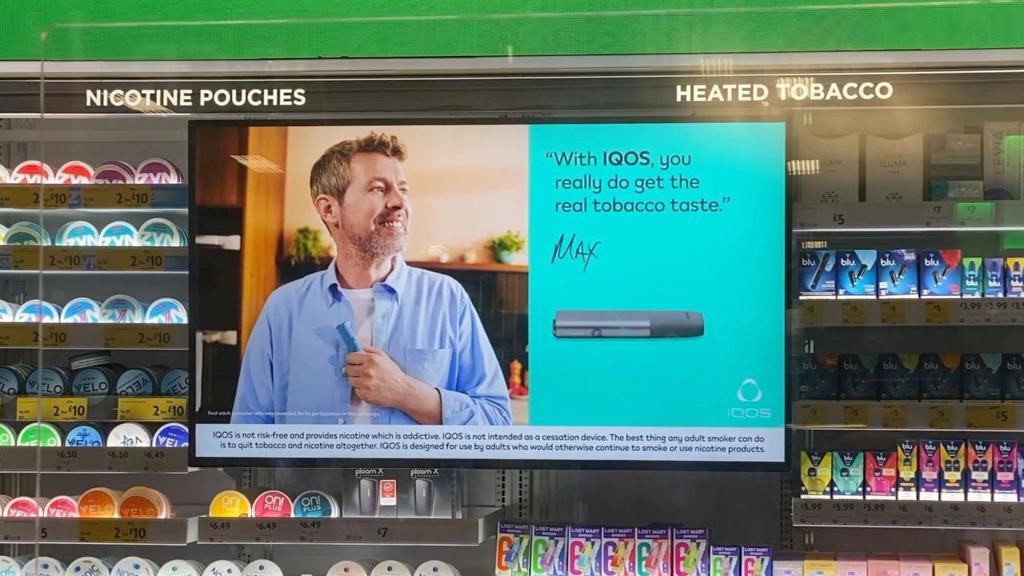The UK government has formally requested that Sainsbury’s and Morrisons cease advertising and promoting heated tobacco products, citing violations of existing legislation.
As reported by the BBC in February, both supermarket chains displayed in-store promotional materials for heated tobacco devices, which use electric current to heat tobacco, producing nicotine-containing vapor.
While both initially maintained the legality of their advertising, Sainsbury’s now confirms close communication with the government, and Morrisons promises a forthcoming response.
The 2002 Tobacco Advertising and Promotion Act, enacted under the Blair government, prohibits tobacco advertising, defining tobacco products as those “smoked, sniffed, sucked, or chewed.”
Morrisons argued that this definition excludes heated tobacco products due to their lack of smoke production; however, BBC observations in June showed continued advertising for Philip Morris International’s (PMI) iQos device in both stores, visible to children.
PMI contends the Department of Health’s interpretation is erroneous, asserting full compliance with regulations since the 2016 iQos launch. The government’s letter clarifies its position that the existing law does apply.
A Department of Health and Social Care (DHSC) spokesperson stated, “In May, we wrote to supermarkets reiterating that the Tobacco Advertising and Promotion Act 2002…applies to all tobacco products, requesting cessation of heated tobacco product advertising.” They emphasized the inherent health risks associated with all tobacco products.
Action on Smoking and Health (ASH) surveys reveal a significant increase in heated tobacco product awareness, particularly among young adults. Nearly a quarter of 11- to 17-year-olds reported familiarity, up from 7.1% in 2022. While low, the 2.7% of this age group who reported trying heated tobacco is concerningly similar to adult usage rates, according to ASH.
Experts note that, while research is limited, heated tobacco is likely less harmful than cigarettes but more harmful than vaping and less effective for smoking cessation.
Morrisons will respond after reviewing the letter; Sainsbury’s maintains advertising compliance, stating ongoing engagement with the government and industry. Judicial determination of the government’s interpretation is pending, with no legal challenge yet filed.
The forthcoming Tobacco and Vapes Bill will definitively address this, banning all tobacco and vape advertising and sponsorship. Currently at the committee stage in the House of Lords, its passage will clarify the legal landscape.
ASH chief executive Hazel Cheeseman urged swift passage, criticizing supermarkets’ non-compliance. She highlighted the prolonged exposure of children to tobacco marketing. The Act’s UK-wide applicability is reinforced by agreement from devolved administrations. Asda and Tesco confirmed their rejection of tobacco advertising.
Trading Standards and police recently conducted raids, uncovering thousands of cigarettes and vapes, alongside potential labor law violations.
These raids, part of Operation Fearless in Stoke-on-Trent, follow the single-use vape ban.
The NHS website has for the first time advised against relying on food pouches for daily meals.

